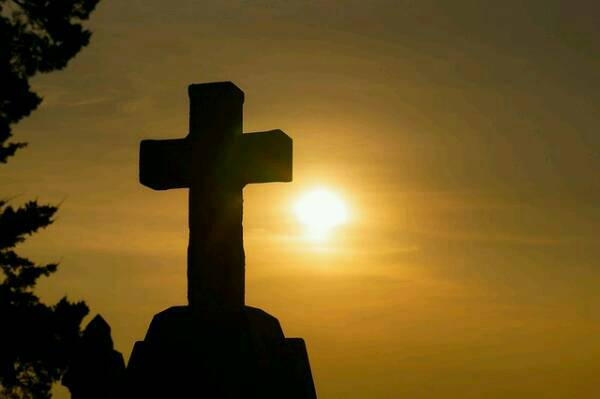
It is a well known fact that Hindu religion has deep caste divisions. This is one of the major cause of dalits and other backward caste people willing to convert into other religions like Christianity. The disgust with caste system can be assessed when Dr. Ambedkar said that though he was born a hindu, he would not die as a hindu. But, do other religions have similar problems?
Kerala bishop statement
In an article ‘ Is the caste system deep rooted among Christians in Kerala? A Kerala Bishop stirs up a hornet’s nest’ by TA Ameerudheen (published April, 20, 2018, thescroll.in ) a Kerala’ s senior bishop of the Jacobite Syrian Church stated to have said that some Christians practice caste system in the state and he would stay away from traditional family gatherings of the members of the church.
According to the article, some financially sound Syrian Christians organise annual gatherings attended by prominent priests. The bishop of Niranam Diocese, Geeverghese Mor Coorilos said that these meetings were organised to ” proclaim the artificially cultivated upper caste identity and lineage” and he would not like to be a part of this tradition any more.
The article further states that on April 9 , Mor Coorilos wrote on his Facebook page ” These people believe that their ancestors were Brahmins converted by St. Thomas. They even publish family history books during the get- together. Such baseless upper- caste myths have to be busted … “. Syrian Christians are believed to be one of the oldest christian community tracing their origins to St. Thomas, one of the 12 disciples of Jesus Christ. It is believed that when St. Thomas visited Kerala in 1 st Century CE, he converted some Brahmin families to christianity.
Similar oppression
Scholars point out that some christians tendency to hark back yo their Brahminical lineage indicates that christianity is not free from the blight of caste. They draw attention to dalits who converted from hinduism only to find similar oppression in christianity. Dr. Sanal Mohan, visiting fellow in commonwealth studies at university of Cambridge opines that caste oppression of dalits in Kerala has led to formation of many churches exclusively meant for dalits. A prominent church is Prathyaksha Raksha Daiva Sabha ( PRDS) founded in 1909 by the dalit activist and poet Poikayil Yohannan which was an early movement against caste oppression, according to historian Mohan. Other exclusive churches for dalits that formed later include The World Evangelical Mission, CMS Anglican Church, Salvation Army and so on. This indicates that there has been a ‘ dalit movement ‘ within christianity in the state. Boby Thomas, author of the Malayalam book ‘ Christians: A handbook for Christianity’ agreed that discrimination of dalits was rampant in the state and christians pretend to be from upper castes and take pride in their brahminical roots.
In Tamil Nadu, Untouchability Eradication Front published a damning report exposing discrimination of dalits. The formation of Parishes ( admimistration district by priest) and separate chapels for dalit christians in the villages reflect caste discrimination. A dalit activist and writer Antonysami Marx expressed dismay over the discrimination and pointed out that church or its members did not address the problem.
While some historians disagree on the presence of Brahmins in Kerala during St. Thomas supposed visit, Susan Viswanathan, sociologist, JNU who wrote a book ‘ Christian of Kerala’ agrees though it is hard to prove conclusively, St. Thomas Christians or Syrian Christians used their upper caste status to remain close to power. They are patrilocal and patrilineal like brahmins they claim descent from.
In backward states where the population of adivasi and tribes is high, converted Christians face discrimination to a large extent. The church priests and christian missionaries must address the problem and treat dalits on par.
Caste and Islam
Not much has been said about hindu caste influence on Islam. In an article, , Remy Delage, ( Muslim castes in India, 29, September, 2014, translated by Susannah Dale, www.booksandideas.net ) analyses the importance of castes in understanding the social organizations of muslims in India. Islam in India, along with its Arab and Middle east practices of patriarchy, exploitation of women, practice of marriage, has also deep caste divisions – the ‘ Ashraf ‘ nobility with its lineage dating back to prophet and the lowest stratum (‘Arzals) . The discrimination based on caste and the forced conversions were prevalent during Mughal rule, the kings being upper caste muslims. The dalits and backward converts were invariably placed in the lowest strata of muslims ( Arzals) and discrimination continued.
Ambedkar solution
After a lot of introspection, Ambedkar arrived at a decision of a ‘ religion’ that has no caste system – Buddhism. Though it has been split into Mahayana and Hinayana by the brahmins to dilute the religion, he found it as an appropriate replacement. Ambedkar believed that the religion of Budha gave freedom of thought and development of all. A ( Ambedkar and Budhism and Democracy, Christopher Jefferlot, 13 December2017 , www.thewire.in). Ambedkar saw the comparison between budhism and French Revolution.
Therefore, to end discrimination of dalits and other castes, a perfect way is essential in order to establish egalitarian society.
Sheshu Babu is a writer from anywhere and everywhere. Whenever he ponders on the question ‘ who am I?’ , he finds some response in a lyric ‘ Ami ek jajabor’ by Bhupen Hazarika ( Assamese) translated into Hindi by Gulzar
“I am a gypsy
The earth has called me her own
And I have forgotten my home …”
( English Translation) .











































